
Tehran 2012: From the Axis (of evil) to the Non-Aligned Movement
After long years of silence and quiescence, the Non-Aligned Movement gained momentum in the debate about global governance and the management of alternative strategies of engagement with the world of international affairs. The setting was an unusual one per se, suggesting that the 16th gathering of the NAM was likely to be of a different nature. Indeed, Tehran, during the heated summer of 2012, seemed to be one of the less aligned capitals of the world, for a number of issues, widely debated in political science circles as well as among foreign policy decision-makers. Crippling sanctions, shadow negotiations and an on-going regional conflict in the Middle East, with several branches developing in Syria, Lebanon, Bahrain and perhaps Yemen, have put …
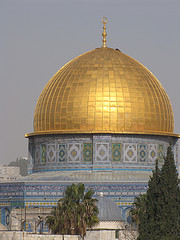
Preventing progress in Palestine: Israel must do more to break the deadlock
In Israel and the Palestinian territories, decades of conflict have not offered ripe soil for mutual understanding and peace on reasonable terms. Endless confrontation has eroded hopes for successful negotiations. Nonetheless, the frequent reference to a ‘status quo’ in the Israeli-Palestinian conflict is mistaken – in my opinion, it’s pure political rhetoric and this conflict is anything but one of attrition. Every day, new settler houses are being built in the West Bank and east Jerusalem – on Palestinian land. Everyday bricks are added to the anti-terrorist fence (or apartheid wall, as some call it), thereby outcasting communities of shared history, as well as hindering commerce and splitting communities (and families) apart. The Israeli government, meanwhile, has authorised the building …
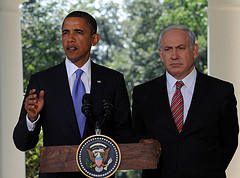
Obama must stand up to Netanyahu
Reposted here is my op-ed in today’s Independent on Obama’s meeting with Netanyahu. It is clear what kind of Israeli prime minister President Obama will be receiving at the White House today. Benjamin Netanyahu is a bellicose, right-wing Israeli nationalist, a rejectionist on the subject of Palestinian national rights, and a reactionary who is deeply wedded to the status quo. Nationalism has an in-built tendency to go to extremes and Netanyahu’s brand is no exception. A nation has been defined as ‘a group of people united by a mistaken view about the past and a hatred of their neighbours’. This definition fits the Likud leader on both counts: he has a selective and self-righteous view of his own country’s history and …
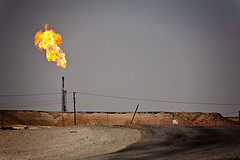
Oil wealth after the Arab Spring: A trillion-dollar catalyst for change
At the end of the 19th Century, Lord Curzon, the then British Viceroy of India, described Iran and its Arab neighbours as “pieces on a chessboard upon which is being played out a game for the domination of the world”. The geostrategic importance of the Middle East, with its immense oil wealth, has shaped the policies of colonial empires, secured the longevity of autocratic regimes and given rise to religious elites. The ‘game of chess’, as described by Lord Curzon, promises great riches and influence for the players involved, but has often come at a huge cost for the majority of the Arab people. Indeed, oil wealth, so narrowly shared between the region’s ruling minorities, has historically presented a barrier …
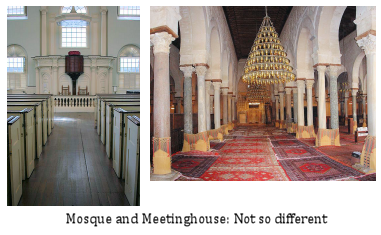
Many Trails to Freedom: Islamic Democracy is not an Oxymoron
“I disapprove of what you say, but I will defend to the death your right to say it.” – Voltaire. Over Christmas I visited Boston and had the occasion to walk the famous freedom trail: 3 miles of sights commemorating American independence. As I walked this hallowed ground I pondered on those fighting for freedom today, in the streets of Cairo, Homs and Tunis. Having met some of these people, I wondered at the suspicion we direct at the Islamic parties now gaining power, as if we forgot our own history. American democracy was born of Puritan principles of self-government, but that did not prevent it from evolving into the (more or less) secular body it is today. Ignoring this …
What Obama didn’t say about Iraq
The Iraq war was not a success. It was a failure. A dismal failure, and Western governments should learn from their mistakes. Of course, nobody can deny the brutal crimes that Saddam Hussein was responsible for. The savage attacks against the Kurdish population in Northern Iraq, the invasion of Kuwait and the terrorising of innocent civilians in the town of Dujail after an assassination attempt serve as prime examples of the sadistic nature of the Iraqi dictator. The world is definitely safer without him, but this in no way outweighs what the world, and in particular the Iraqi people, have had to give up. Transparency International’s most recent Corruption Perception Index (measured in 2010) ranked Iraq as having 175th most …
Yemen’s Winter of Discontent
As the Arab Spring continues to reverberate through the countries of the Islamic Middle East, attention has now turned to the impoverished Arabian Peninsula state of Yemen. There the popular rising against President Ali Abdallah Saleh’s regime that began last February, inspired by events in Tunisia and Egypt, is now rapidly descending into a bloody civil war. In a country where every second person owns a gun, the escalation of violence has been gradual but deadly. Hundreds have been killed during September in heavy fighting on the streets of the capital Sana’a, as forces loyal to the government have sought to violently suppress street protests. In response, army units that have defected are protecting the protestors. As these well-armed military formations …
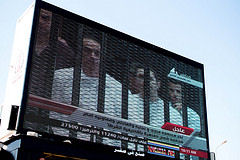
Trying Mubarak
I have recently published an article entitled ‘Trying Mubarak’, discussing what has been called ‘the trial of the century’ in Egypt. I argue that the trial of former Egyptian President Hosni Mubarak, which began on 3 August 2011, represents a barometer of the fortunes of the January Revolution as a whole. A common challenge confronts both the achievement of accountability in the trial, and the fulfilment of the Revolution’s demands, namely the role of the ruling Supreme Council of the Armed Forces (SCAF). This article discusses the achievement which the holding of this trial represents in the context of the revolution, as well as the practical challenges faced by the legal team of the victims’ families. It then considers the …









